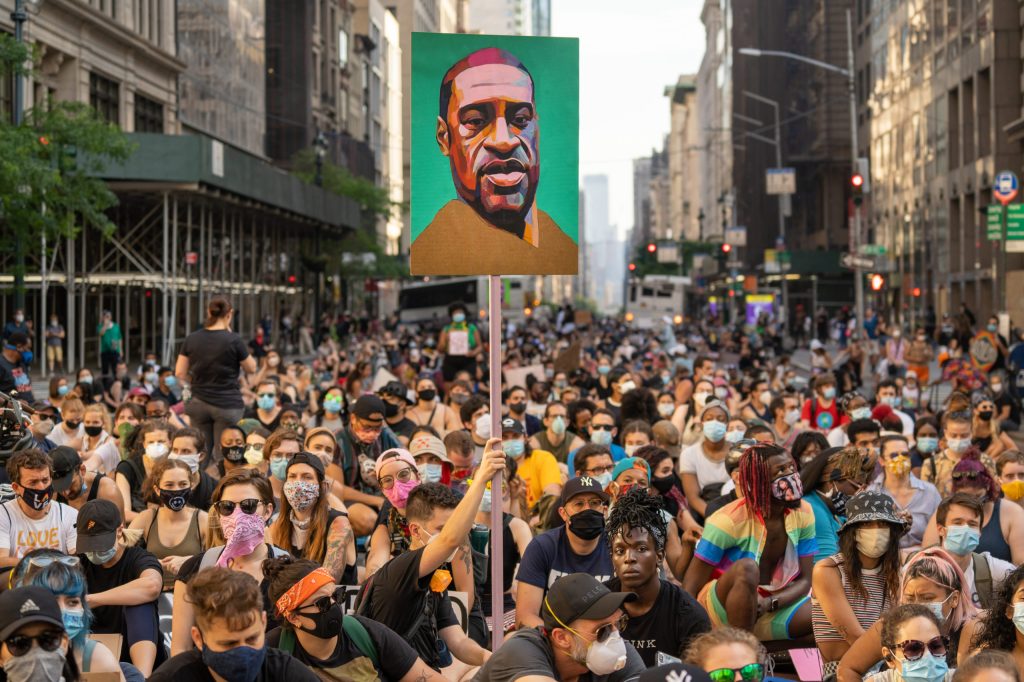‘If people in Wales had access to as much media coverage of decisions that affected Wales as they do of US domestic news we’d have a better election campaign.’
This statement, tweeted by Welsh government minister Lee Waters shortly after 10 p.m. on Tuesday evening, just as the verdict in the George Floyd murder trial was about to be announced, sparked outrage.
‘Rancid,’ ‘horrific’ and ‘ignorant’ were just some of the comments directed at Welsh Labour’s deputy minister for transport. Fellow Senedd members rushed to join in the condemnation. A Plaid Cymru spokesperson declared, ‘Lee Waters’s tweet was highly inappropriate, ill-judged and thoughtless.’ The Welsh Liberal Democrats, not wanting to fall short in demonstrating outrage, commented: ‘To make the comparison between the death of an individual at the hands of the police and his opinion of political coverage in Wales is both foolish and exceptionally poor judgment.’
It took Waters just half an hour to apologize and delete the offending tweet. He explained: ‘On reflection, insensitive timing. Not detracting from the enormity of the issue, just frustrated that News at 10 turned itself into News24.’
Presumably, Waters had spent the day on the campaign trail discussing jobs, wages, lockdown, education, housing and a whole host of other issues with his constituents who will soon vote in the Welsh election. He’d then sat down to watch the 10 o’clock news only to find blanket coverage of court proceedings taking place thousands of miles away and seemingly irrelevant to the problems facing Welsh citizens.
It is a pity Waters deleted his tweet. Although the timing might not have been great, his sense of frustration was no doubt genuine. The broader question he raises is worth considering: why have major British television networks and some UK newspapers given so much coverage to US domestic news?
The excruciating video clip of Derek Chauvin’s knee on George Floyd’s neck as he gasps, ‘I can’t breathe’ is shocking and painful to watch. So it is understandable that we know George Floyd’s name and are interested in the trial of Derek Chauvin. But it is entirely possible to be outraged at the killing of George Floyd, interested to hear the jury’s verdict and pleased that justice has been done while also wondering quite why it needs to dominate UK news coverage to quite such an extent.
Our response to Floyd’s death, here in the UK, has been driven by far more than compassion, interest, and anger. There has been something different, almost obsessive, in the ensuing blanket media coverage, mass demonstrations and ritualistic performances by public figures. Last May, Black Lives Matter protests took place from Shetland to Guernsey. Footballers, police officers and politicians have all been pictured taking the knee. All of this occurred at the height of a global pandemic and in the middle of a national lockdown.
Now, George Floyd’s sister, LaTonya, is calling on people in Britain to fight racism in George Floyd’s name. ‘Always use George Floyd as an example, keep him in mind, protest in his name, because you see what happened here,’ she has said.
But why should Brits do this? Why should an entire nation be expected to join in protests and watch round-the-clock trial coverage? Thankfully, we simply do not have the same problem of police killing citizens in the UK as in the US. The pressure group Inquest estimates that there have been 14 BAME deaths in UK police custody in the last three years. That’s fewer than the 23 (at the time of writing) non-white people killed by US police this month so far. That doesn’t detract from the horror of police killings but it does put the scale of the UK’s problems in proportion.
It seems that many anti-racist campaigners here in the UK are happy for the distinctive histories of the two nations to become blurred and for racism across the Atlantic to become our racism too. In this way, George Floyd’s killing comes to represent institutional racism in the UK and, in response, we need to imitate American rituals: to black out our social media profiles and take the knee.
Blurring national concerns in this way makes the UK seem like a far more racist society than it actually is. It directs our attention to issues such as police killings that are not a major problem in the UK while, at the very same time, overlooking our own contemporary issues with race. It ignores the problems caused by our own distinctive history of empire and the appalling treatment once faced by new arrivals from the colonies.
George Floyd did not die in the UK. His death did not occur at the hands of a British police officer. The extensive coverage of his trial reveals the desperate need that sections of British society have to prove the existence of racism here too, and to deny the enormous strides Britain has taken towards becoming a more racially tolerant society.
This article was originally published on The Spectator’s UK website.


















